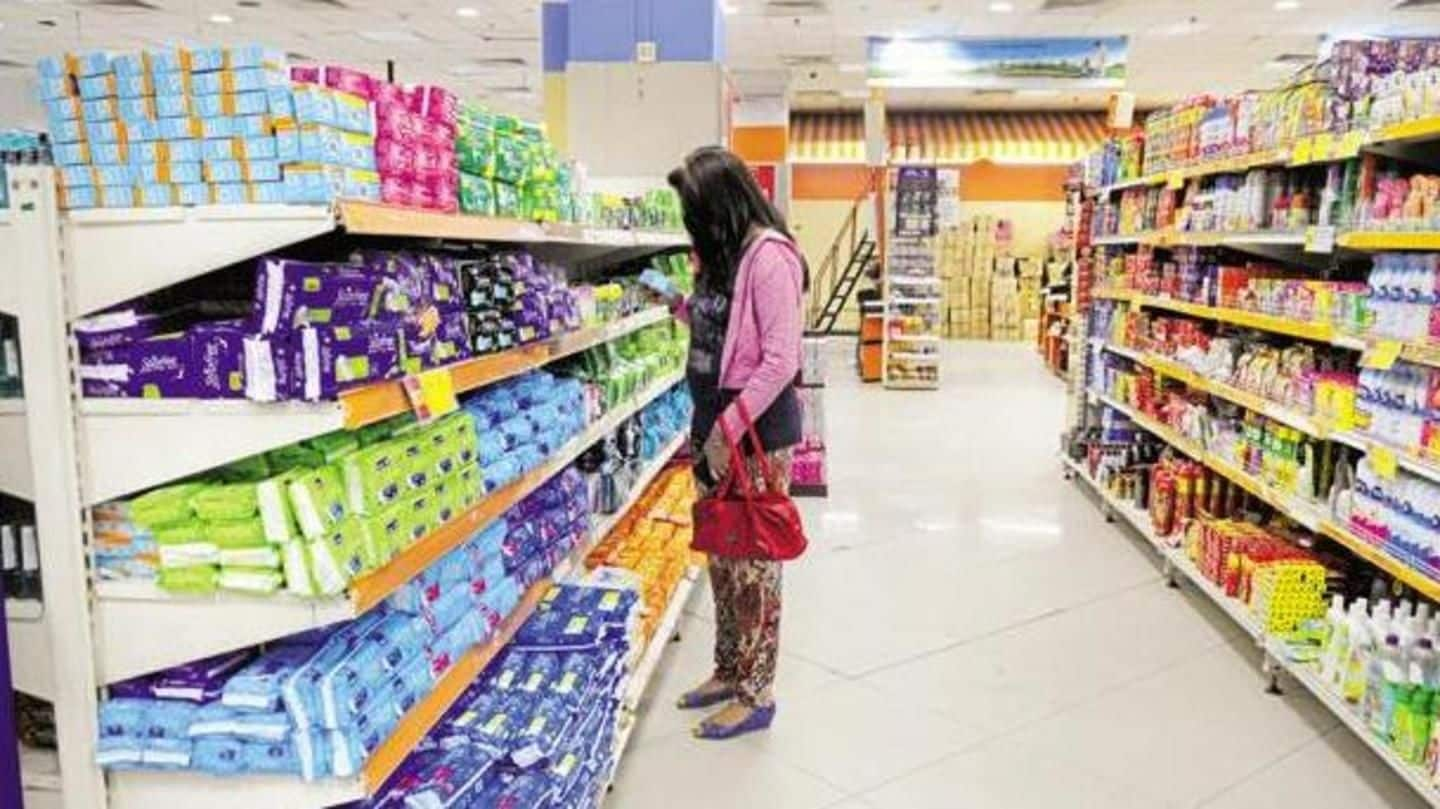
After backlash, sanitary napkins finally exempted from GST
What's the story
After many protests, the GST Council has decided to exempt sanitary napkins from the tax, confirmed Delhi Finance Minister Manish Sisodia. Napkins were being taxed 12% till now, but several petitions filed in various courts had challenged the tax rate, asking why such a basic necessity wasn't exempted. In India, many women can't afford to buy napkins, and 62% use cloth during menstruation.
12%
Initially, the government placed napkins under 12%
When GST was rolled out on July 1 last year, people immediately questioned why sanitary napkins had been placed in the 12% category. "Does Indian government think period blood is a luxury?" read an article's title on DailyO. Within 10 days, the government issued an explanation: "Pre-GST, (pads) attracted concessional excise duty of 6% and 5% VAT, and total tax incidence was 13.68%."
Quote
'Many components taxed higher than napkins': Government defends
It added that several components used in making pads in fact attracted a higher tax incidence. For example, super absorbent polymer, poly ethylene film, glue and packing cover were taxed at 18%. This actually led to "an inversion in the GST structure," it said.
Protest
Citizens point out several flaws in government's argument
Multiple reports and activists pointed out faults in the explanation. For one, VAT only applied to some states, so for others, total tax on napkins had gone up from 6% to 12%. Moreover, the components under higher rate account for only 20% of the manufacturing cost, ET said. 80% cost is for cotton, which attracts 5% GST. Sanitary napkins were a necessity and not luxury, women argued.
Stats
62% of women use cloth during menstruation, government study finds
Protests were based on the fact that 62% women aged 15-24 use cloth during menstruation due to lack of resources, the National Family Health Survey found. Usage of cloth was higher among rural women (71%) and Scheduled Tribes (75.4%). Women from the highest wealth quintile were more than four times likelier to use hygienic methods as women from the other extreme (89% versus 21%).
Courts
The matter goes to the courts
In the following months, several petitions were filed in various high courts demanding exemption for napkins. In November, the Delhi HC asked why napkins, a necessity, were being taxed 12% when items like bindi, sindoor and kajal were exempt. But in January, the SC stayed all those proceedings, saying it would examine if it could hear all cases itself.
Criticism
Does the exemption make sense? Many disagree
It is noteworthy that now, manufacturers, including of low-cost napkins, will lose out on the input tax credit they can avail under GST, and costs will increase for them. Many pointed out that corporations are unlikely to pass on benefits of the reduced rate to customers. Moreover, 12% reduction brings Rs. 56 down to Rs. 50, a change that presumbaly won't influence buying behavior.